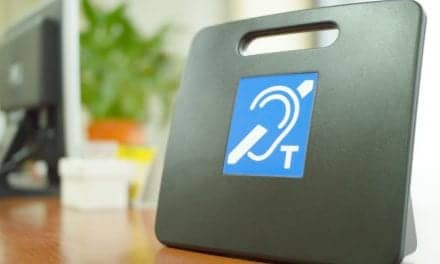Singular Hearing, a technology developer of progressive audio solutions, announced that it will unveil its AI-powered hearing app, HeardThat, at CES 2020 in booth 31504. HeardThat reportedly “turns a smartphone into a hearing assistant, helping to tune out background noise to enable individuals with hearing loss to hear speech more clearly, allowing them to engage in conversations they would otherwise have trouble hearing,” according to the company’s announcement. For more information, click here to view the HeardThat App video.
“Often the first step in helping people with a hearing problem is an in-ear hearing aid,” said Singular Hearing Founder and CEO, Bruce Sharpe. “However, the weakness of even the most sophisticated hearing aids is the challenge of separating speech from background noise. Hearing aids tend to amplify all sound, making it difficult to have one-on-one or group conversations in a noisy environment. It can be frustrating enough that a person with hearing loss may even avoid a social outing or public place. Machine learning gives us the unique power and flexibility to solve this long-standing problem. We are passionate about putting it to use through HeardThat and providing new options for the millions of families, friends, and colleagues who suffer from hearing loss.”
HeardThat reportedly utilizes “advanced machine learning machine algorithms” to separate speech from noise. According to the company, “it listens to the noisy environment and delivers de-noised speech, to the individual’s Bluetooth-enabled hearing aid or other listening devices via their smartphone.”
“Machine learning algorithms require too much processing power to run on hearing aids or other small devices. By leveraging the smartphone, our HeardThat App is freed from hardware constraints and so can do much more. And because it is an agile and flexible software solution, HeardThat can be quickly and continually improved upon,” said Sharpe.
HeardThat, a new generation of software hearing assistive solutions will be available in Q1, 2020 on Android and iOS.
Source: Singular Hearing





